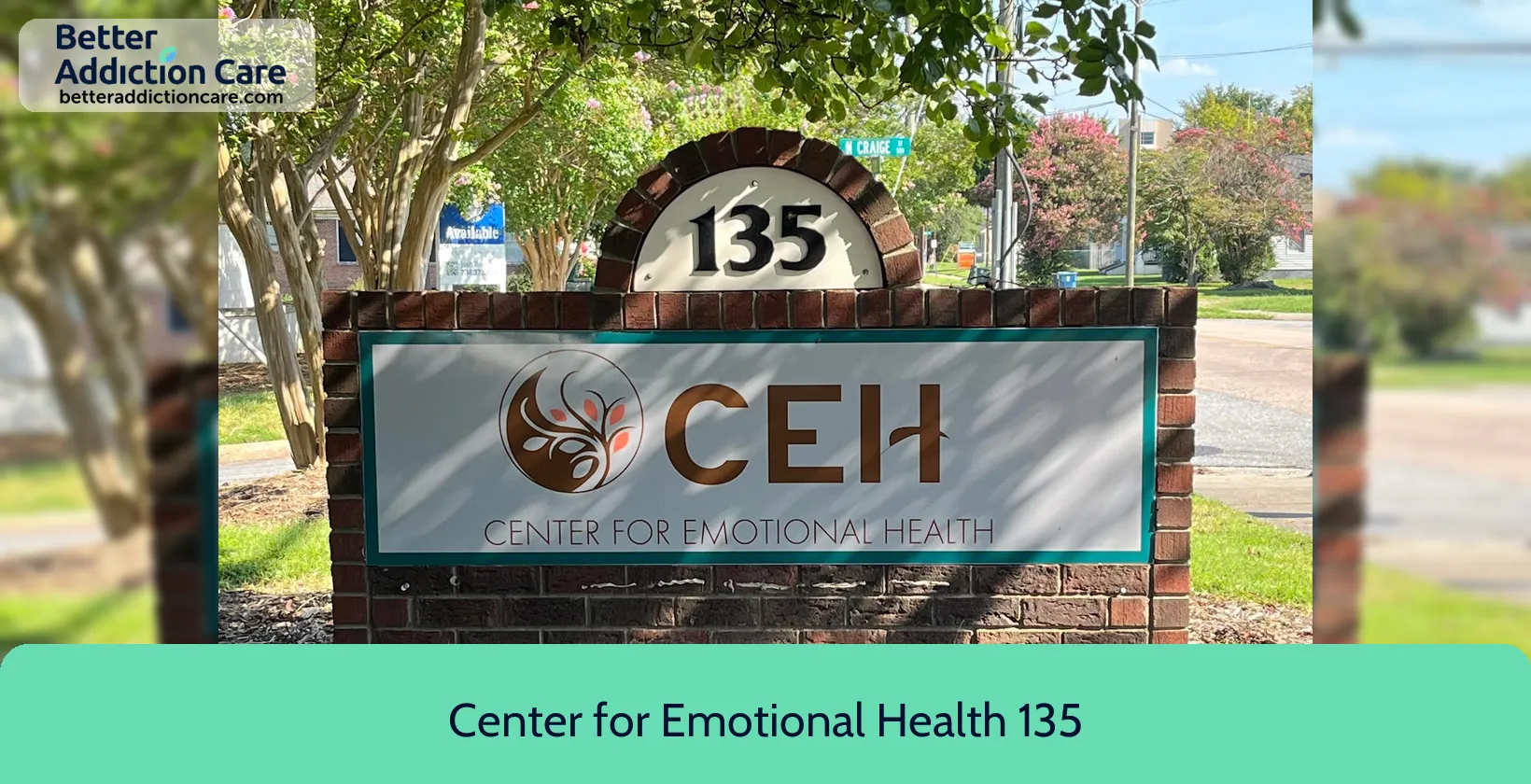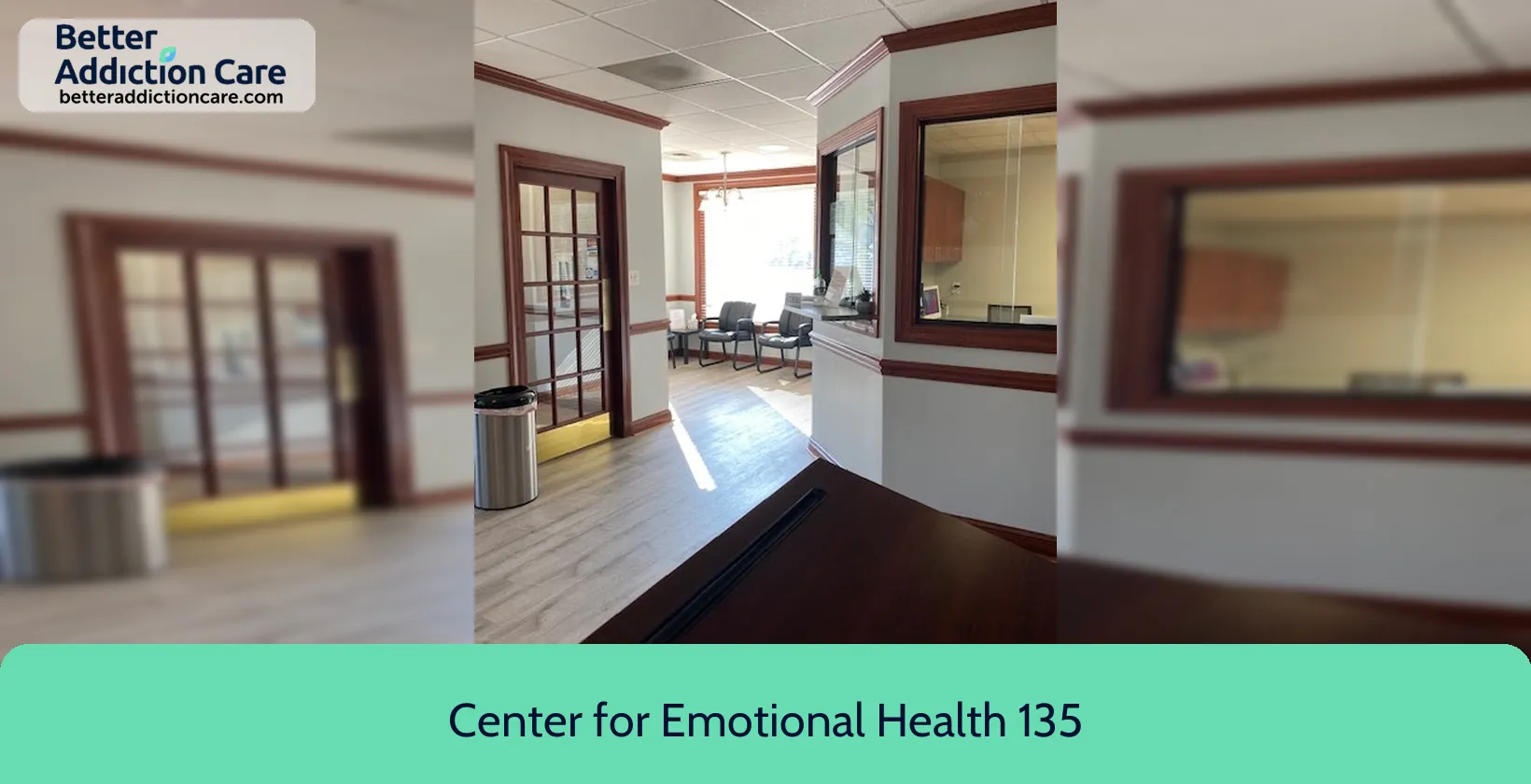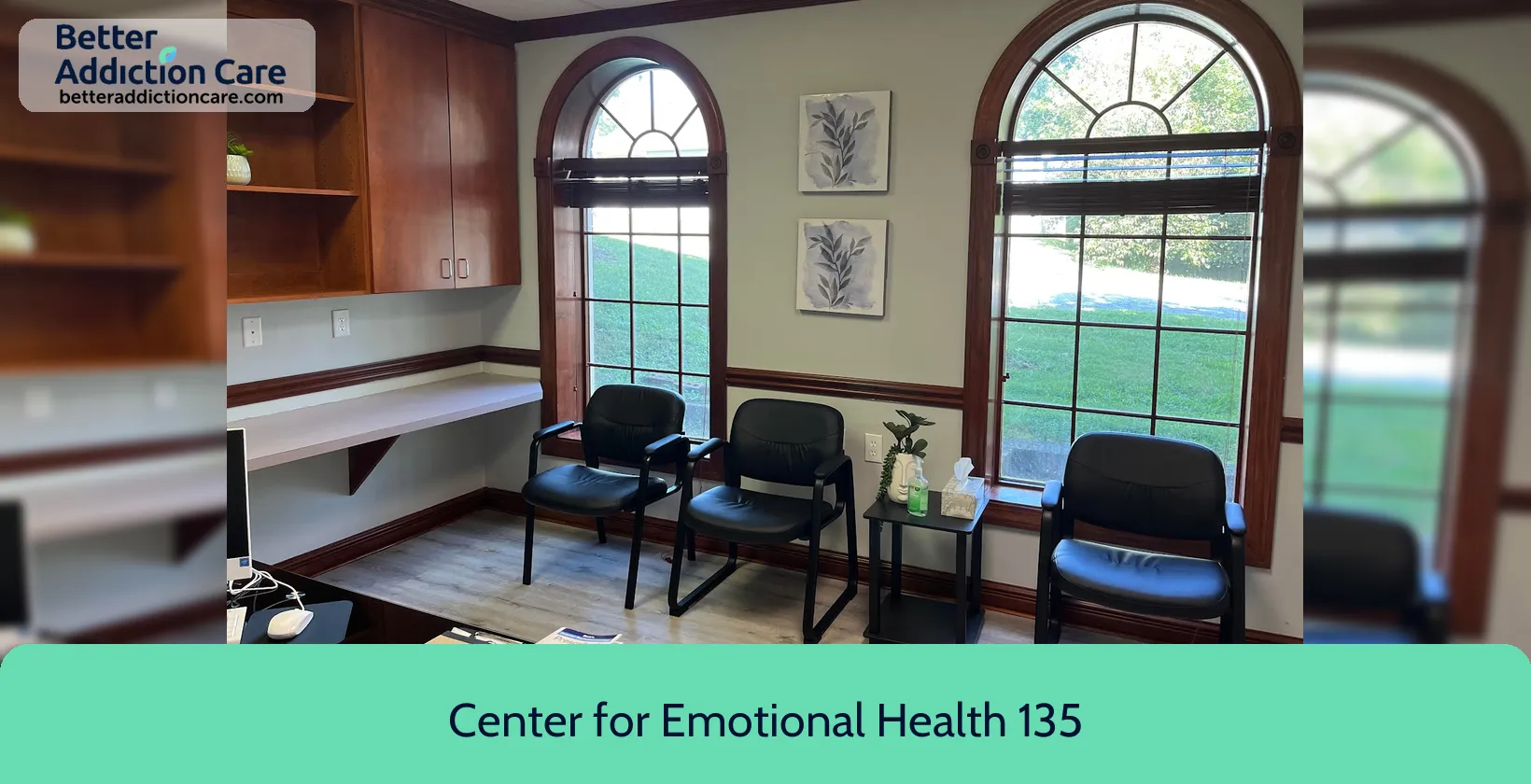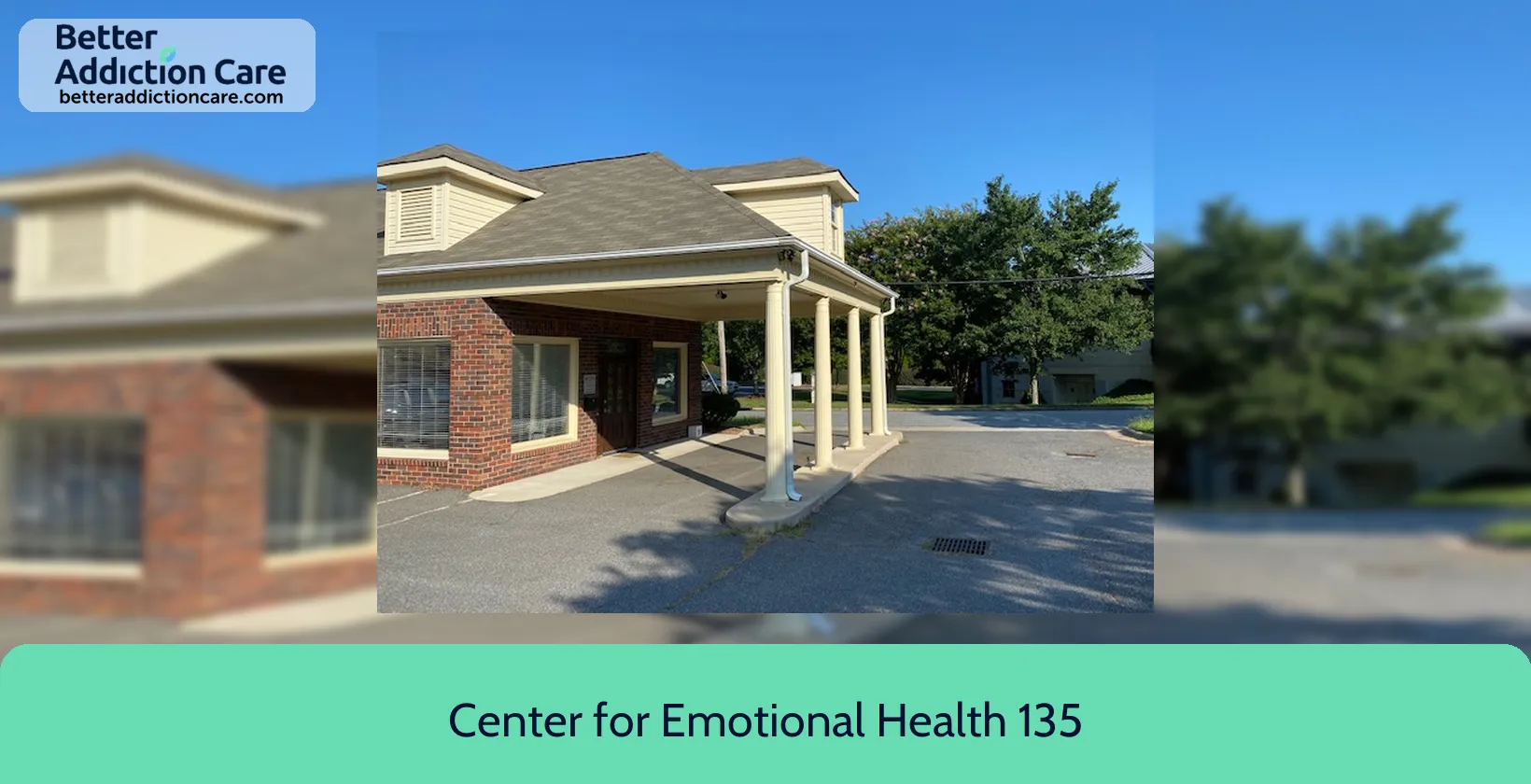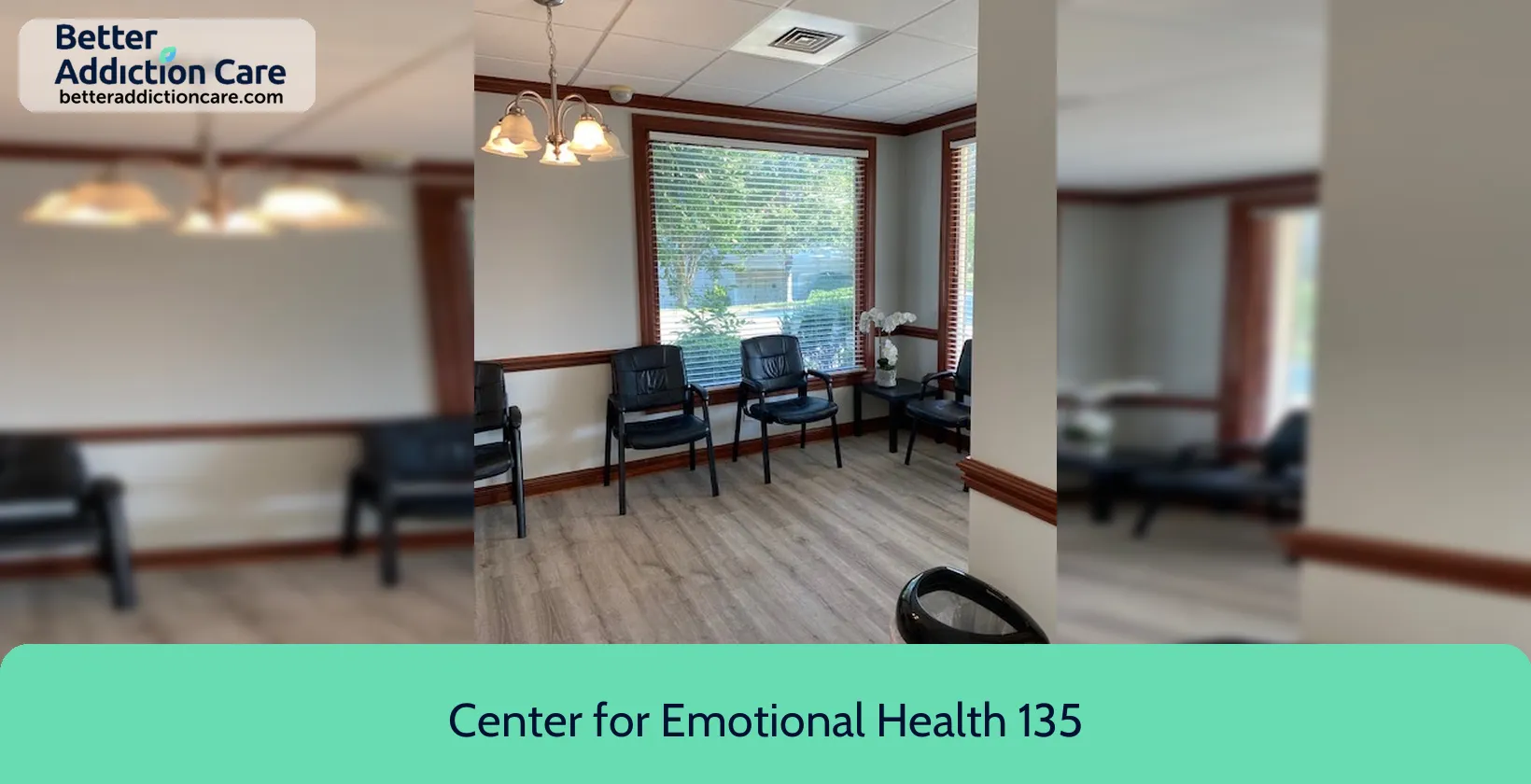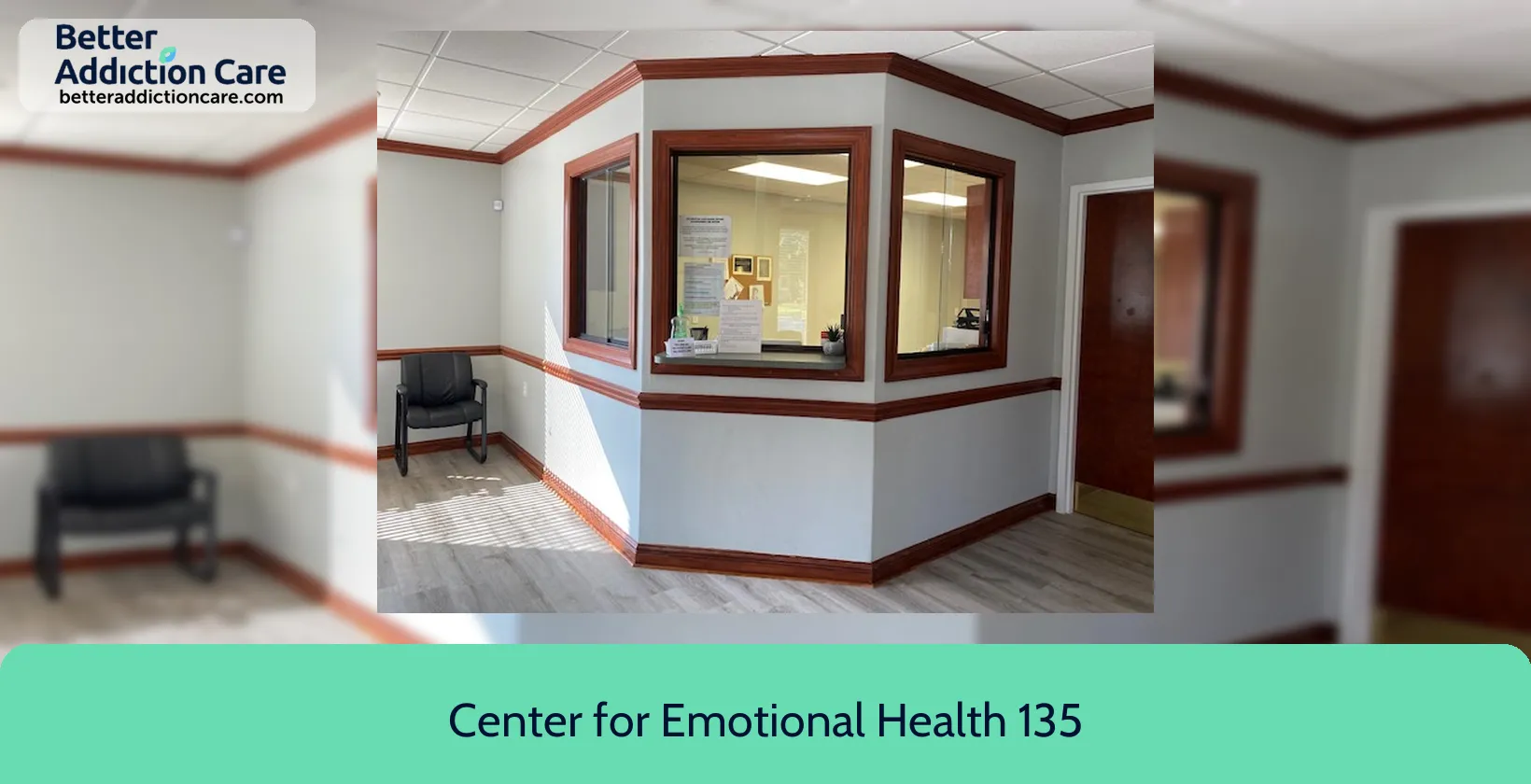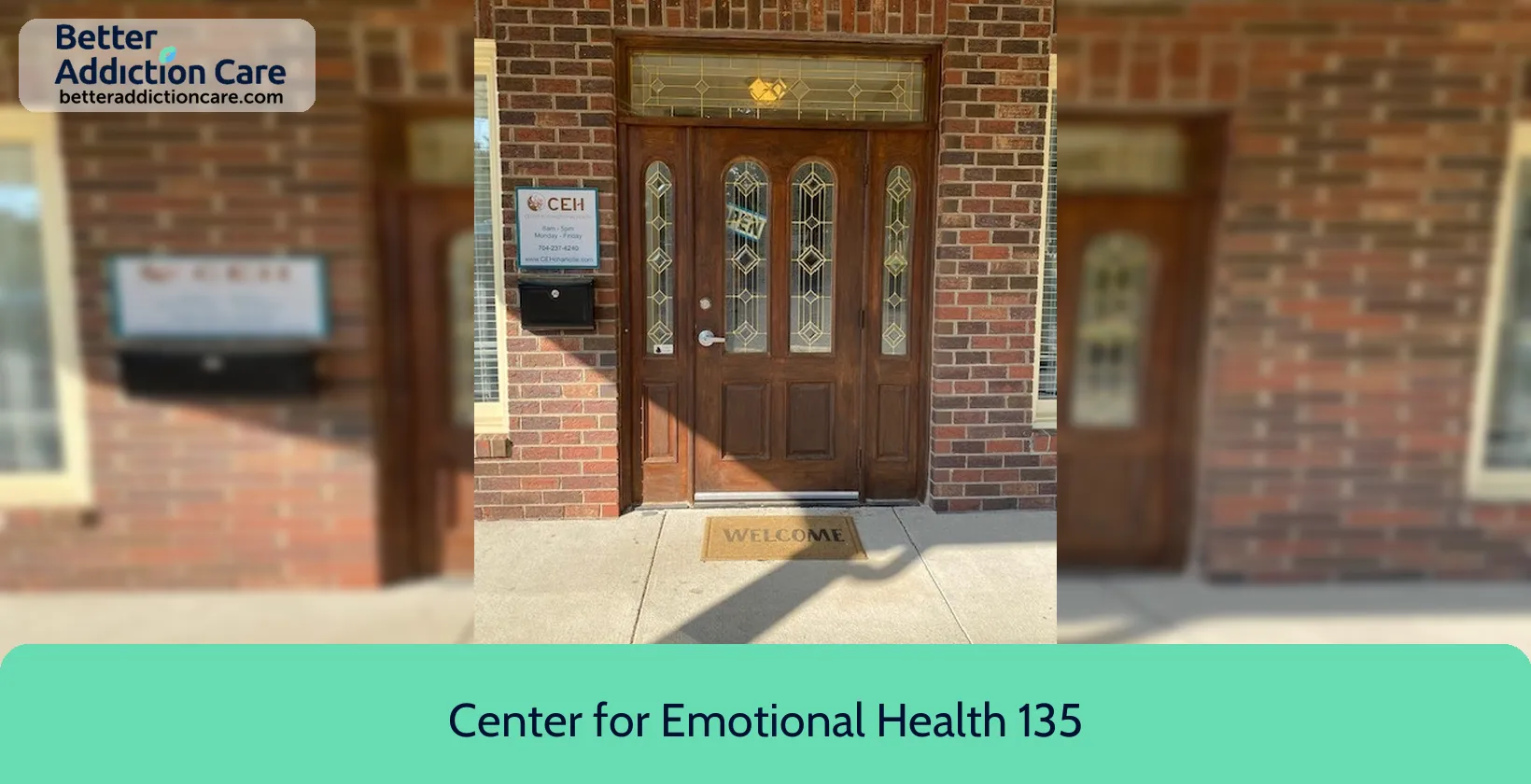Center for Emotional Health 135 Mocksville Avenue
Overview
Center for Emotional Health 135 Mocksville Avenue is an substance abuse treatment center that provides outpatient detoxification, for men from 16 and 65+ years of age. As part of their special programs, Center for Emotional Health 135 Mocksville Avenue treats clients with co-occurring mental and substance use disorders and veterans. To help patients achieve sobriety, Center for Emotional Health 135 Mocksville Avenue provides treats alcohol detoxification, opioids detoxification, and medication routinely used during detoxification.. Afterward, patients receive cognitive behavioral therapy, telemedicine/telehealth therapy, and substance use disorder counseling during treatment. Center for Emotional Health 135 Mocksville Avenue is located in Salisbury, North Carolina, providing treatment for people in Rowan County, accepting cash or self-payment, medicaid, and private health insurance.
Center for Emotional Health 135 Mocksville Avenue at a Glance
Payment Options
- Cash or self-payment
- Medicaid
- Private health insurance
- Federal military insurance (e.g., TRICARE)
Assessments
- Screening for tobacco use
- Comprehensive mental health assessment
- Comprehensive substance use assessment
- Interim services for clients
- Outreach to persons in the community
Age Groups
- Children/adolescents
- Seniors
Ancillary Services
- Suicide prevention services
- Mental health services
Highlights About Center for Emotional Health 135 Mocksville Avenue
7.37/10
With an overall rating of 7.37/10, this facility has following balanced range of services. Alcohol Rehabilitation: 8.00/10, Drug Rehab and Detox: 8.15/10, Insurance and Payments: 6.00/10, Treatment Options: 7.33/10.-
Drug Rehab and Detox 8.15
-
Alcohol Rehabilitation 8.00
-
Treatment Options 7.33
-
Insurance and Payments 6.00
Treatment At Center for Emotional Health 135 Mocksville Avenue
Treatment Conditions
- Alcoholism
- Mental health treatment
- Substance use treatment
- Co-occurring Disorders
Care Levels
- Outpatient
- Outpatient detoxification
- Outpatient methadone/buprenorphine or naltrexone treatment
- Regular outpatient treatment
Treatment Modalities
- Cognitive behavioral therapy
- Telemedicine/telehealth therapy
- Substance use disorder counseling
- Smoking/vaping/tobacco cessation counseling
- Group counseling
Ancillary Services
Additional Services
- Pharmacotherapies administered during treatment
- Discharge Planning
- Breathalyzer or blood alcohol testing
Special Programs
- Clients with co-occurring mental and substance use disorders
- Veterans
Get Help Now
Common Questions About Center for Emotional Health 135 Mocksville Avenue
Contact Information
Other Facilities in Salisbury

6.64

6.65

6.68

6.71
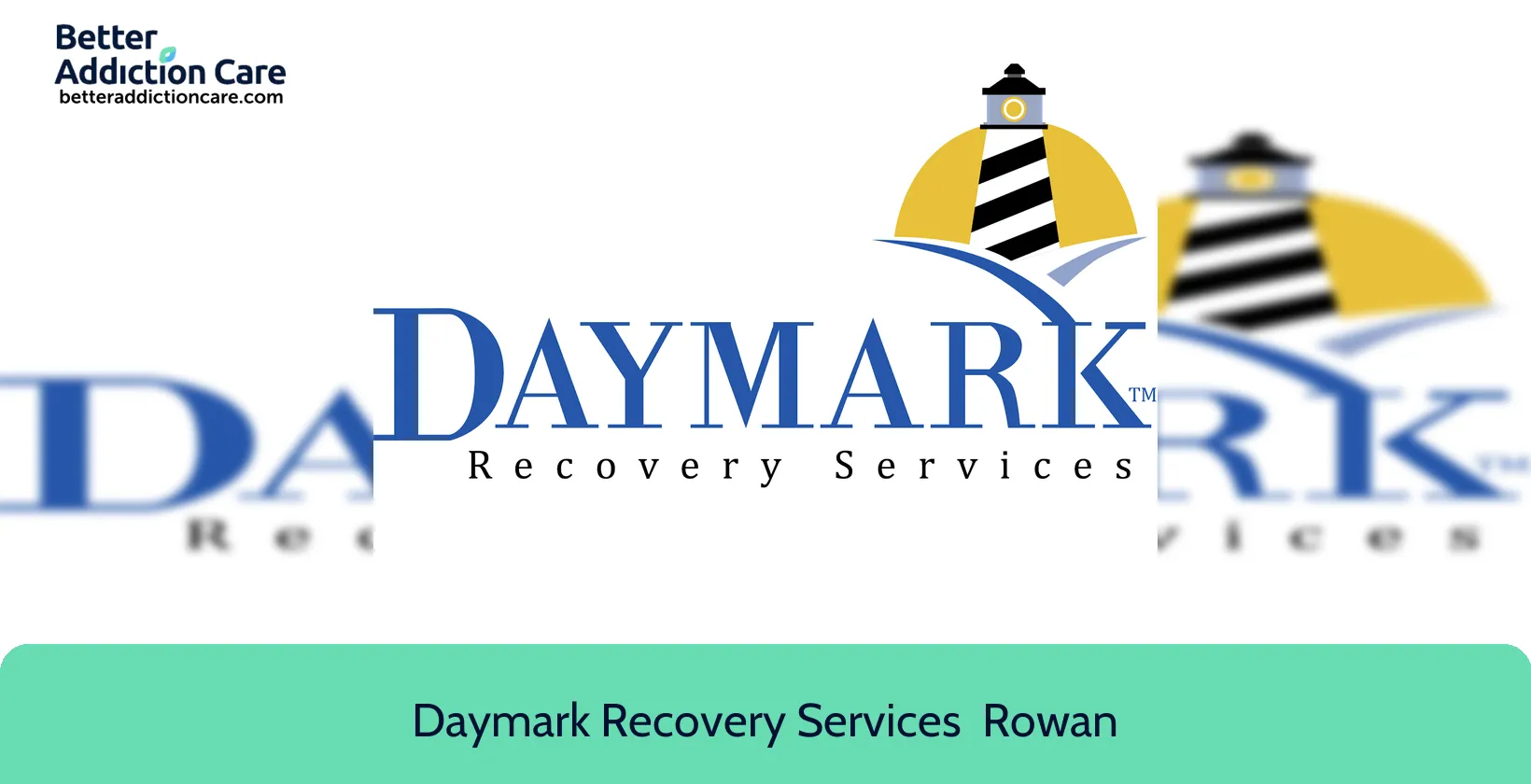
7.29

7.74
DISCLAIMER: The facility name, logo and brand are the property and registered trademarks of Salisbury VA Medical Center - Substance Abuse Residential Rehab, and are being used for identification and informational purposes only. Use of these names, logos and brands shall not imply endorsement. BetterAddictionCare.com is not affiliated with or sponsored by Salisbury VA Medical Center - Substance Abuse Residential Rehab.
